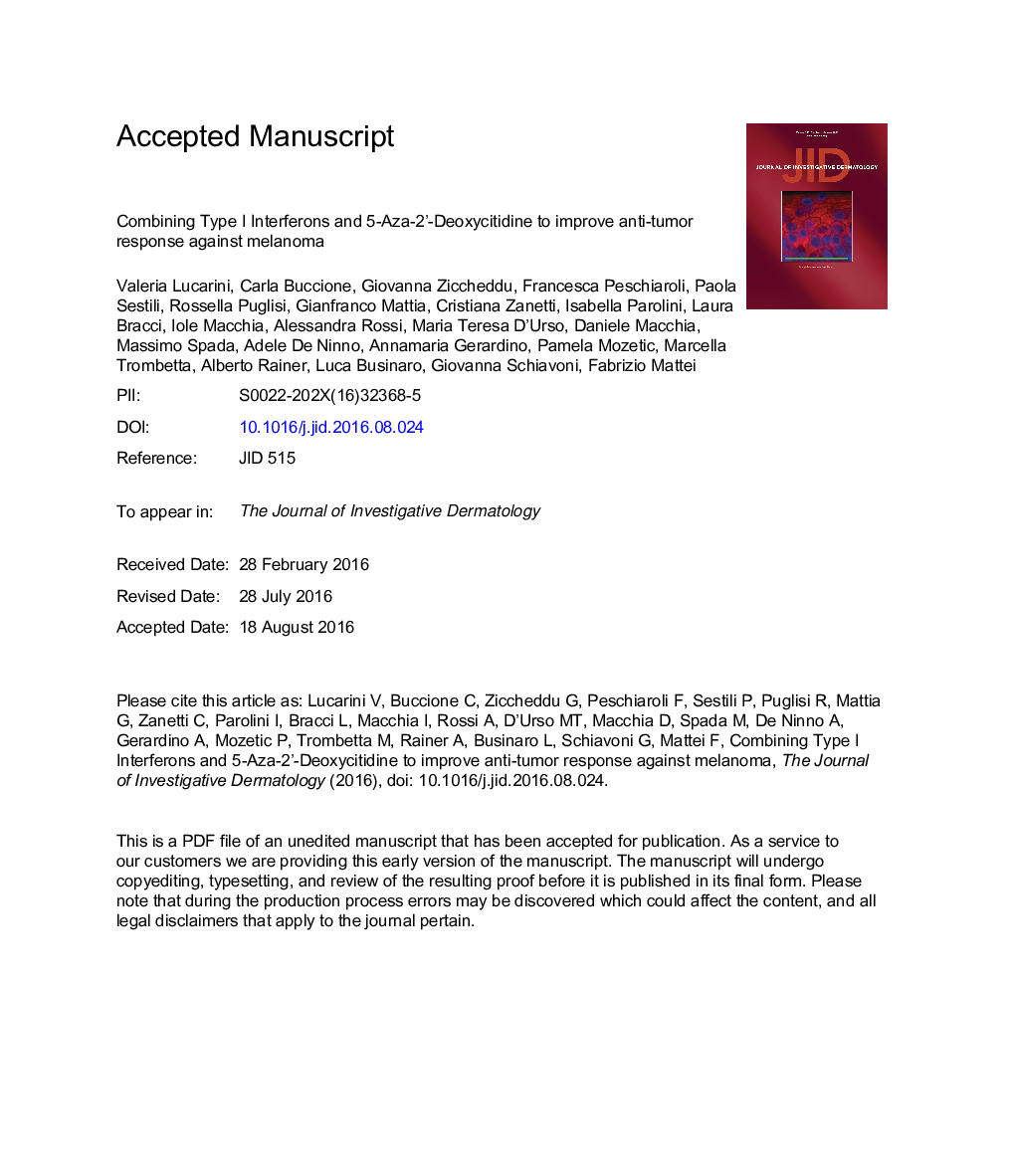| Article ID | Journal | Published Year | Pages | File Type |
|---|---|---|---|---|
| 5649840 | Journal of Investigative Dermatology | 2017 | 28 Pages |
Abstract
Resistance to IFN-I-induced antineoplastic effects has been reported in many tumors and arises, in part, from epigenetic silencing of IFN-stimulated genes by DNA methylation. We hypothesized that restoration of IFN-stimulated genes by co-administration of the demethylating drug 5-aza-2â²-deoxycitidine (decitabine [DAC]) may enhance the susceptibility to IFN-I-mediated antitumoral effects in melanoma. We show that combined administration of IFN-I and DAC significantly inhibits the growth of murine and human melanoma cells, both in vitro and in vivo. Compared with controls, DAC/IFN-I-treated melanoma cells exhibited reduced cell growth, augmented apoptosis, and diminished migration. Moreover, IFN-I and DAC synergized to suppress the growth of three-dimensional human melanoma spheroids, altering tumor architecture. These direct antitumor effects correlated with induction of the IFN-stimulated gene Mx1. In vivo, DAC/IFN-I significantly reduced melanoma growth via stimulation of adaptive immunity, promoting tumor-infiltrating CD8+ T cells while inhibiting the homing of immunosuppressive CD11b+ myeloid cells and regulatory T cells. Accordingly, exposure of human melanoma cells to DAC/IFN-I induced the recruitment of immune cells toward the tumor in a Matrigel (Corning Life Sciences, Kennebunkport, ME)-based microfluidic device. Our findings underscore a beneficial effect of DAC plus IFN-I combined treatment against melanoma through both direct and immune-mediated anti-tumor effects.
Keywords
Related Topics
Health Sciences
Medicine and Dentistry
Dermatology
Authors
Valeria Lucarini, Carla Buccione, Giovanna Ziccheddu, Francesca Peschiaroli, Paola Sestili, Rossella Puglisi, Gianfranco Mattia, Cristiana Zanetti, Isabella Parolini, Laura Bracci, Iole Macchia, Alessandra Rossi, Maria Teresa D'Urso, Daniele Macchia,
